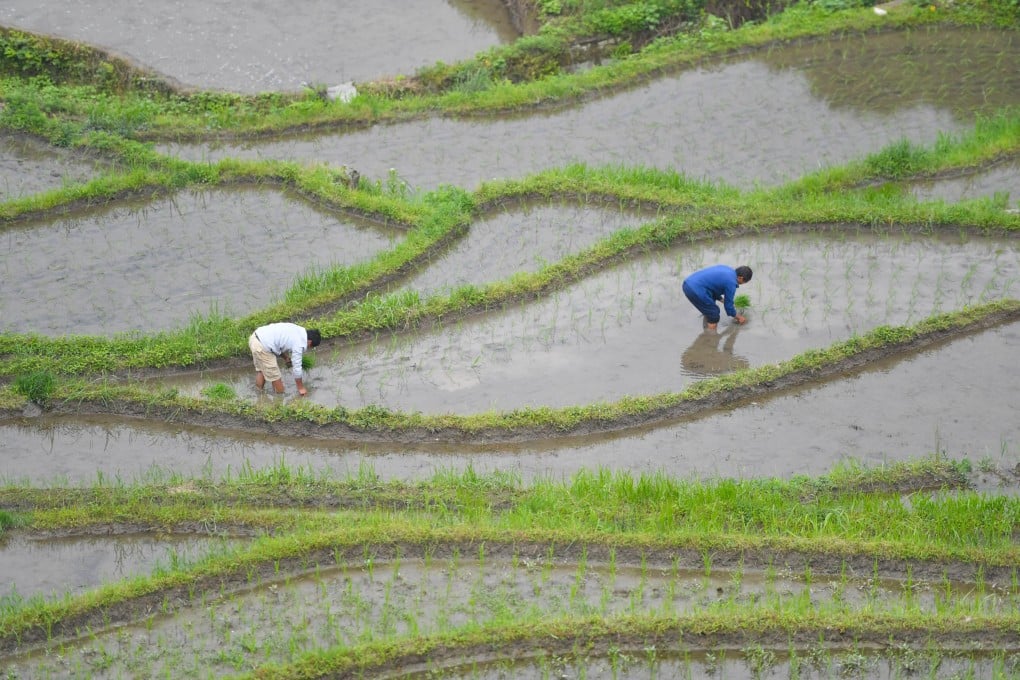Higher carbon dioxide levels could put rice crops at risk, study finds
- Reduced phosphorus – an essential nutrient – seen in paddy soils when CO2 in the atmosphere was elevated, according to researchers
- They estimate 55 per cent of the world’s rice paddies will face increased yield reduction risks due to phosphorus deficiency in the future

Phosphorus is an essential nutrient for plant metabolism and growth. A prolonged deficiency in the nutrient can affect plant development and limit yields, and previous research has suggested that increased carbon dioxide levels in the atmosphere could affect phosphorus levels in soil.
The new study – led by researchers from the Chinese Academy of Sciences’ Institute of Soil Science in Nanjing – involved two long-term experiments to evaluate the effect of elevated carbon dioxide on phosphorus concentrations in rice paddy fields.
Researchers found that by the end of the experiments, the phosphorus available in the soil had declined by more than 20 per cent. During a 15-year period from 2004 to 2018, there was a 27 per cent reduction. And between 2011 and 2019, phosphorus levels were down by 21 per cent.
The study was published in the peer-reviewed journal Nature Geoscience last month.
Soil phosphorus is found in two forms – organic and inorganic. About 30 to 65 per cent of soil phosphorus is organic and has to be converted to inorganic phosphate with the help of microbes in the soil before it can be taken up by plants. Another 35 to 70 per cent is inorganic, and that includes what is known as soil-available phosphorus.